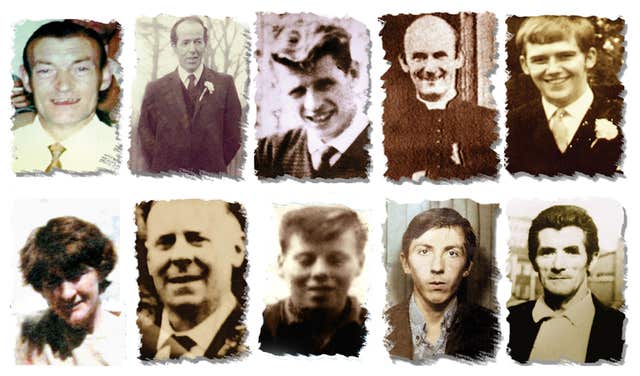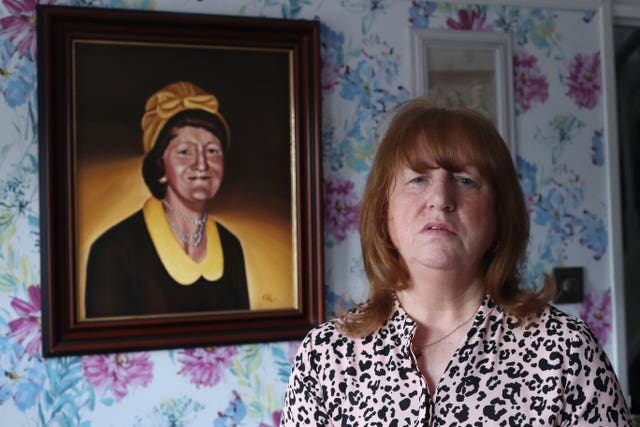
Findings will be published later following fresh inquests into the fatal shooting of 10 people in disputed circumstances involving the Army in west Belfast 50 years ago.
A mother of eight and a Catholic priest were among those who died in August 1971 in events which have become known locally as the Ballymurphy Massacre.
It came during a turbulent period following the controversial introduction of internment without trial in Northern Ireland at the start of the Troubles.
Violence erupted on August 9 when soldiers moved into republican strongholds to arrest IRA suspects.
Original inquests into the Ballymurphy deaths in 1972 returned open verdicts and the bereaved families subsequently pursued a long campaign for fresh probes to be held.
New inquests began in 2018, with the final oral evidence heard last March.

Eye-witnesses, forensic experts, former Sinn Fein president Gerry Adams and more than 60 former soldiers – including former head of the Army General Sir Mike Jackson – gave evidence at Belfast Coroner’s Court.
The families of those killed contend they were innocent, unarmed civilians shot by soldiers without justification.
Relatives took part in a church service on Monday ahead of the findings and described their feeling that Tuesday will be a hard and anxious day.
Briege Voyle said the pain of losing her mother, Joan Connolly, was made even harder when misinformation was circulated that she had been a gunwoman.
Ms Voyle told the PA news agency that she is praying Ms Connolly’s name will finally be cleared on the official record five decades later.

Father Hugh Mullan was shot after he had crawled to waste ground where a man had been shot to administer the Last Rites.
His brother, Patsy, described him as simply wanting to help people.
“My brother was not involved in anything other than going out to help somebody,” he said.
“He was a priest and anointed a man; as he left him to go and try and get an ambulance he was shot.”
The findings are due on a day that an intention by the UK Government to ban future prosecutions of British soldiers who served in Northern Ireland is expected to be outlined in the Queen’s Speech.
It has been reported that the move will also apply to former paramilitaries.
Troubles victims and politicians across Ireland voiced anger at the expected move last week when it was reported in the Daily Telegraph and the Times.


Comments: Our rules
We want our comments to be a lively and valuable part of our community - a place where readers can debate and engage with the most important local issues. The ability to comment on our stories is a privilege, not a right, however, and that privilege may be withdrawn if it is abused or misused.
Please report any comments that break our rules.
Read the rules here